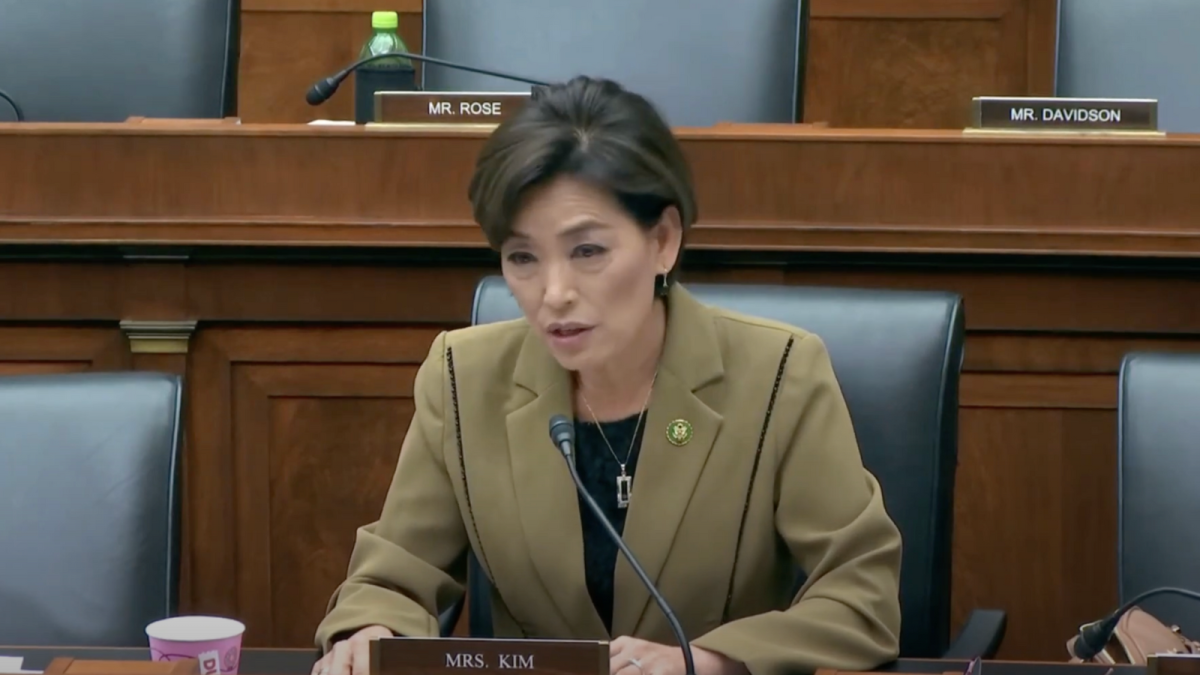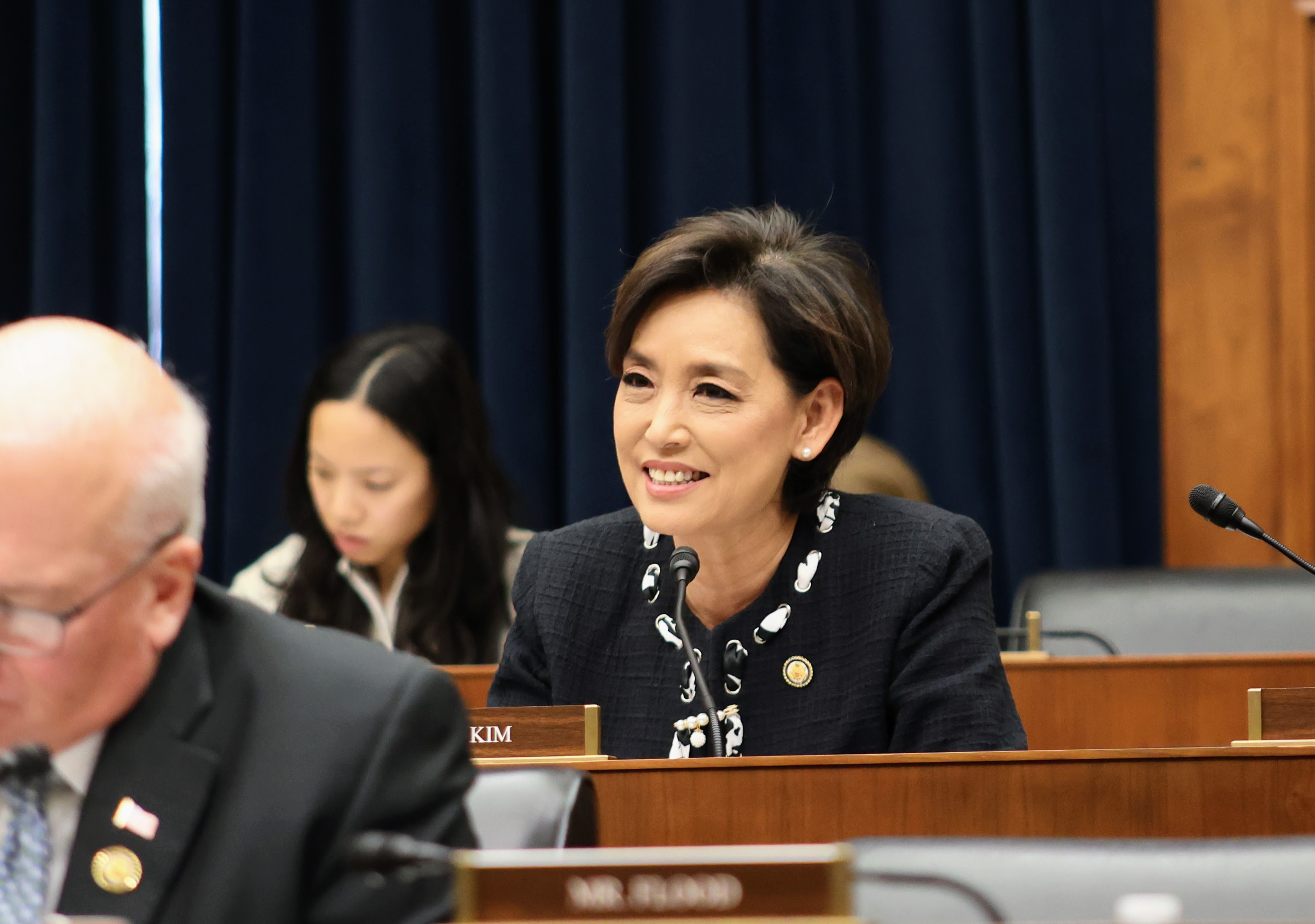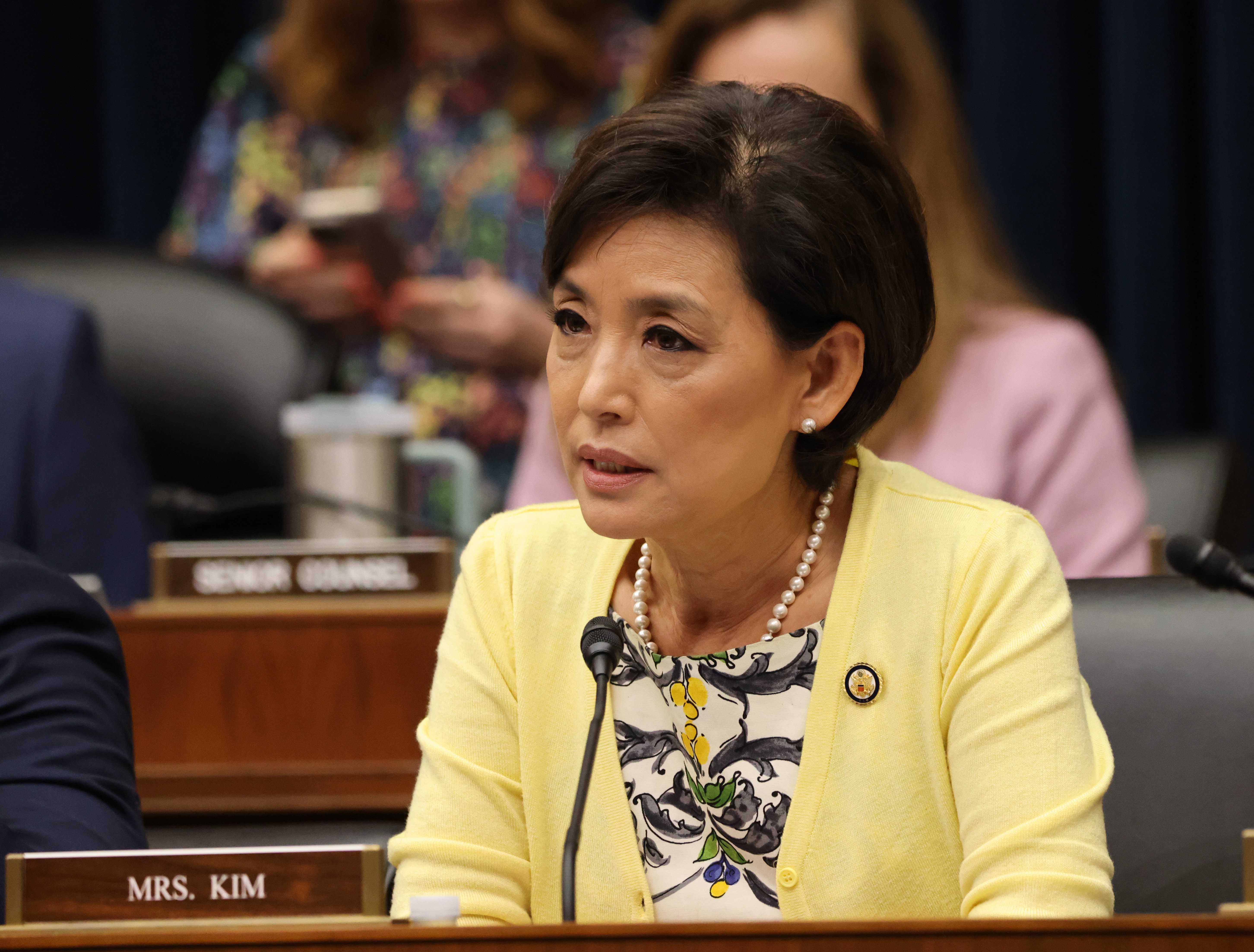Washington, DC – Today, the Financial Services Committee passed several bills to counter malign influence of the Iranian regime, including the Iran Counterterrorism Act of 2023 (H.R. 6323) introduced by U.S. Representative Young Kim (CA-40) to restore Congressional authority over Iran sanctions.
Under current law, the Biden administration has authority granted by Congress to waive sanctions on Iran. H.R. 6323 would amend this authority to prohibit the administration from issuing a waiver on Iran sanctions unless either a joint resolution is passed by Congress, or the administration can certify that the Iranian regime has ceased to provide support for international terrorist groups like Hamas and Hezbollah. Additionally, Congress will also be able to debate a joint resolution of disapproval of a waiver.
“We cannot afford to embolden Iran – the world’s largest state sponsor of terrorism – any further,” Rep. Kim, who serves as Vice Chairwoman of the Financial Services Subcommittee on National Security, Illicit Finance, and International Financial Institutions. “Congress must restore its constitutional authority on sanctions policy and have a say if the administration is determined to waive sanctions. That’s why I introduced the Iran Counterterrorism Act to do exactly that. I’ll keep working to protect our national security and hold adversaries accountable.”
Rep. Kim spoke in committee in support of H.R. 6323. Watch HERE and read her remarks below.
Thank you, Chairman McHenry and Committee staff for working with me to call up H.R. 6323, the Iran Counterterrorism Act.
The October 7th attack by Hamas against the people of Israel underscored the dangers posed by Iran, which has long been classified by the State Department as the world’s leading state sponsor of terrorism.
Since 2012, the Iranian Regime has spent more than $20 billion to support international terrorist groups around the world. Furthermore, reports indicate that Iran raised its funding for Hamas’ armed wing over the last year from $100 million to around $350 million per year.
Just prior to the October 7th attacks, the administration issued waivers that allowed the transfer of $6 billion in Iranian funds from South Korea to Qatar in exchange for five American hostages. While we are all pleased that these hostages have been freed, Members on both sides of the aisle have criticized the waivers that led this ransom payment. Even the administration has had second thoughts: following Hamas’s attack on Israel, the Deputy Secretary of the Treasury announced that these funds are not leaving Qatar anytime soon.
Sources tell our office that there are still tens of billions of dollars of Iranian assets frozen by U.S. sanctions. Who’s to say that Iranian regimes does not have an incentive to capture more American hostages in exchange to unfreeze assets?
Both the House and Senate are considering bills to formally rescind the waivers that unfroze the $6 billion. These are worthwhile initiatives. My bill, however, will help ensure that future waivers can also be scrutinized by Congress before it’s too late and the money is out the door.
With my legislation, two of the waiver authorities that the administration used to pay its ransom would be tightened significantly and reassert Congressional authority over the U.S. policy on sanctions.
Under current law, these waivers can be issued if the President determines they are in the national security interests of the United States. My bill, H.R. 6323, says that relevant sanctions can only be waived if Iran has ceased to support international terrorism. If Iran hasn’t done so, and the President still wants to invoke our national security interests to waive the sanctions, then Congress has a review period in which it can disapprove of the waiver.
In other words, the next time that an Administration – any Administration, Republican or Democratic – wants to rely on a national security waiver in order to pay ransom to Iran, the President will have to notify Congress 30 days in advance. If the review period overlaps with the August recess, Congress has 60 days to consider it. During this time, Congress will be able to debate a joint resolution of disapproval under expedited procedures. If that joint resolution is enacted, the waiver cannot be issued. If Congress passes a joint resolution of support, or if it simply chooses not to act, the waiver goes forward. Either way, Congress will regain its authority to have a say before the ayatollahs gain access to any funds.
This congressional review process is taken from an existing law targeting Russia, the Countering America’s Adversaries through Sanctions Act. When this law was enacted in 2017, Congress felt it was essential to have the ability to disapprove of waivers benefiting Moscow. In fact, the bill passed the House by a vote of 419 to 3, with the Senate approving it by a vote of 98 to 2. In 2023, surely, we can agree that Iran waivers deserve similar scrutiny from Congress.
Let me just add here that nothing in my bill affects existing sanctions exemptions for food, medicine, and medical devices. These are blanket exceptions that Congress already built into the sanctions laws we are discussing, and nothing in my legislation changes that.
The waivers issued in September were shocking to many of us even before the October assault on Israel. But after those attacks, every one of us knew that the release of $6 billion through a presidential waiver – without any review by Congress – couldn’t be defended to our constituents. H.R. 6323 will change that.
I urge my colleagues to support this legislation and yield back the balance of my time.




